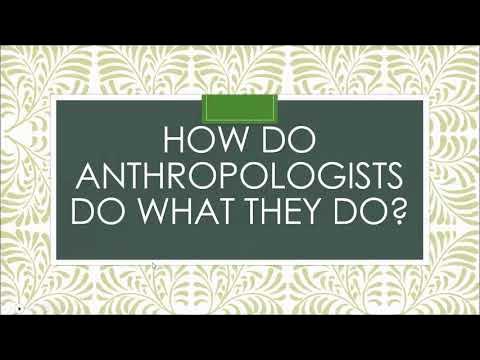Cultural Anthropology Chapter 05 - Convergence Conflict and Hybridization
Summary
TLDRIn this lecture on globalization from a cultural anthropology textbook, the speaker discusses three key theories: cultural convergence, cultural conflict, and hybridization. Cultural convergence suggests a global culture forming due to technology, while cultural conflict views globalization as a force leading to cultural clashes. The speaker emphasizes hybridization, where local cultures adapt global influences in unpredictable ways, as the most accepted theory among anthropologists. The lecture highlights the complexity of globalization's effects, which vary based on local contexts, and notes that not all hybridizations address underlying power imbalances.
Takeaways
- 🌍 Globalization theories in anthropology include cultural convergence, cultural conflict, and hybridization.
- 🔄 Cultural convergence suggests a global village where technology drives all cultures towards a common culture.
- 🍔 McDonaldization and Coca-Colonization are specific examples of cultural convergence, focusing on how certain values, like efficiency and predictability, spread globally.
- ⚔️ Cultural conflict, or clash of cultures, sees globalization as a force that brings Euro-American ideals, leading to potential conflicts.
- 📚 Hybridization is the most accepted theory among anthropologists, viewing globalization as local processes that blend global and local cultures.
- 🔥 Anna Tsing's concept of 'friction' explains how the interaction between global and local cultures creates unique, unpredictable outcomes.
- 💡 Hybridization acknowledges that globalization’s effects are unpredictable and vary based on local cultural contexts.
- ⚖️ Critics of hybridization argue that not all cultural blends are equal, and cultural imperialism can still occur, reinforcing existing power structures.
- 🌐 The debate on globalization shouldn’t focus on winners and losers, but on understanding the specific effects in different contexts.
- 💬 The lecturer encourages feedback and discussion on the topic, reflecting the ongoing debate within anthropology about globalization.
Q & A
What are the three main theories discussed in the transcript regarding globalization?
-The three main theories discussed are cultural convergence, cultural conflict, and hybridization.
What does the cultural convergence theory suggest about globalization?
-Cultural convergence theory suggests that globalization pushes all cultures toward a single common culture, leading to shared references in pop culture, democracy, religion, and leisure activities.
Can you explain the concept of McDonaldization within the cultural convergence theory?
-McDonaldization refers to the spread of fast food values like efficiency, predictability, and technology over human labor, which are becoming embedded in cultures worldwide, reflecting a broader trend of Americanizing global cultures.
What is cultural imperialism, and how does it relate to globalization?
-Cultural imperialism occurs when one culture's traditions are pushed over another, devaluing the local culture in favor of new traditions. This often leads to a loss of identity and can be seen as a form of domination and oppression.
How does the cultural conflict theory view globalization?
-Cultural conflict theory sees globalization as a monolithic force bringing American or Euro-American ideals and values, such as democracy and free enterprise, which can lead to a clash between global and local cultures.
Who are two authors mentioned in the transcript that discuss cultural conflict, and what are their views?
-The authors are Thomas L. Friedman, who views globalization as a positive force for peace and democracy, and Benjamin Barber, who is critical of both globalization and local resistances, advocating for a democratic fusion of local interests.
What is hybridization in the context of globalization?
-Hybridization refers to the ongoing cultural intermingling and fusion that occurs when local and global cultures interact. It emphasizes that globalization is a collection of local processes with unpredictable effects based on local circumstances.
How does Anna Tsing's concept of 'friction' relate to hybridization?
-Anna Tsing's concept of 'friction' describes the dynamic and often conflictual interaction between local and global forces. This friction generates the diverse and unpredictable outcomes of globalization observed in different cultures.
Can you provide an example of hybridization from the transcript?
-An example of hybridization is ISIS using Ford pickup trucks for their operations. These trucks are part of a global network, adapted by ISIS for local needs while simultaneously resisting Western influence.
What is a major criticism of hybridization theory?
-A major criticism of hybridization theory is that it doesn't fully address the unequal power dynamics in globalization. While hybridization occurs, cultural imperialism and the exacerbation of inequalities are still significant concerns.
Outlines

此内容仅限付费用户访问。 请升级后访问。
立即升级Mindmap

此内容仅限付费用户访问。 请升级后访问。
立即升级Keywords

此内容仅限付费用户访问。 请升级后访问。
立即升级Highlights

此内容仅限付费用户访问。 请升级后访问。
立即升级Transcripts

此内容仅限付费用户访问。 请升级后访问。
立即升级浏览更多相关视频
5.0 / 5 (0 votes)






